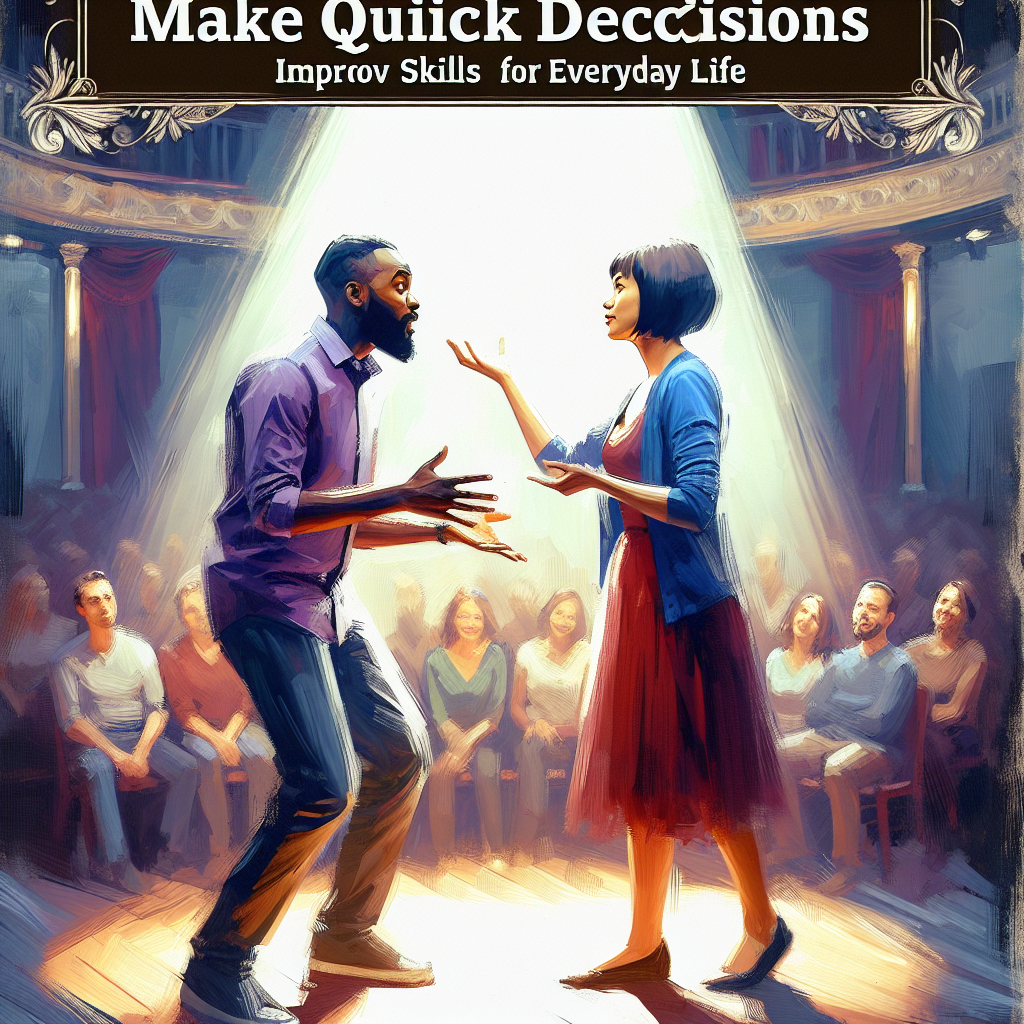Make Quick Decisions: Improv Skills for Everyday Life
In the bustling flow of daily life, decision-making can often feel like being on a destined conveyor belt, where one choice follows another in rapid succession. Whether it’s choosing a lunch spot, navigating an unexpected work dilemma, or deciding how to respond to a social invitation, the ability to make quick and effective decisions is an invaluable skill. Interestingly, the art of improv theater offers a treasure trove of techniques and principles that can be applied to everyday decision-making, enhancing spontaneity, creativity, and confidence.
The Essence of Improv
Improvisation, or improv, is a form of theater where most or all of what is performed is created spontaneously without a script. Improv actors collaborate on the spot to create scenes, characters, and dialogue based on suggestions from the audience or predetermined themes. The essence of improv is a dynamic interplay of adaptability and creativity—it’s about being present, taking risks, and building on the unfolding narrative.
Key Improv Techniques for Decision-Making
-
Embrace the "Yes, And" Philosophy:
Central to improv is the "Yes, And" technique, which encourages acceptance and expansion on ideas. In decision-making, this translates to acknowledging the situation or idea and adding to it. For instance, if presented with a challenging task at work, instead of resisting or blocking the idea, acknowledge its existence ("Yes") and then build on it by brainstorming solutions ("And"). This fosters a mindset geared towards possibilities rather than limitations. -
Trust Your Instincts:
Improv actors rely heavily on their instincts to navigate through performances. In the same way, trusting your gut feelings can be a powerful tool in decision-making. Often, your first instinct is a reflection of your cumulative knowledge and experience. Practice listening to that inner voice and giving it credence when making swift decisions. -
Stay Present:
The cornerstone of improv is staying in the moment. Being present allows an actor to be fully engaged with what is happening, making it easier to respond effectively. In everyday life, focusing on the present reduces anxiety about the future and regret about the past, allowing for quicker and clearer decisions. -
Embrace Mistakes:
In improv, mistakes are opportunities. A slip-up can lead to an unexpected but brilliant moment—an unexpected gift. When making decisions, the fear of making a wrong choice can inhibit action. Embracing the potential of mistakes allows one to move forward, learning and adapting along the way. This perspective decreases the paralysis often caused by overthinking. - Collaborate and Communicate:
Improv is inherently collaborative. Successful scenes depend on seamless interaction and communication between actors. Similarly, many decisions in life benefit from dialogue and collaboration. Seeking input from others can provide fresh perspectives and catalyze innovative solutions.
Everyday Applications of Improv Skills
Handling Unpredictable Situations:
Life throws curveballs when we least expect them—your morning commute is disrupted, or a sudden obligation changes your day’s plans. By tuning into your improv mindset, you can navigate these scenarios with grace and ingenuity, focusing on creating solutions rather than dwelling on disruptions.
Creative Problem-Solving:
Whether tackling a complex project or finding ways to entertain your kids on a rainy day, the creativity spurred by improv principles can lead to novel solutions. Approaching problems with an "everything is possible" attitude opens doors to creativity and innovation.
Enhancing Personal Relationships:
Improv fosters active listening and genuine engagement. These skills are invaluable in personal relationships, where effective communication is critical. By applying improv techniques, you can improve interactions, ensuring that others feel heard and appreciated.
Conclusion
Improv skills aren’t just for actors—they’re a toolkit for life. By employing the principles of improv, from saying "Yes, And" to embracing mistakes, anyone can enhance their decision-making capabilities. The ability to make quick, confident decisions is not just a matter of efficiency; it’s a means to a life full of richer experiences, unburdened by fear of the unknown. So, next time you face a choice, big or small, channel your inner improv actor and step boldly onto life’s stage.
